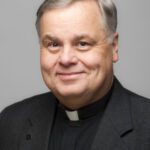I used to volunteer at a homeless shelter that had been run for many years by an Evangelical Protestant church. Every evening, the residents of the shelter attended a prayer service before dinner. I was part of a group of Catholics who came in once a month to lead the prayer service. Our version of the service resembled vespers – psalms, some singing, a Scripture reading, an Our Father, and lots of prayers of the faithful. The leader of our group was especially passionate about social justice. Every month, when he was explaining how the service would go, he suggested to the residents that when they were offering prayers aloud, they should take the opportunity to share with the group their experiences of being oppressed by the wider society. In the event, two things impressed me about the residents’ prayers. First, they were nearly always thoughtful and articulate. Second, no one ever prayed the way our leader suggested they should. There was never a word about being mistreated by society. (Though, believe me, there was a great deal that could have been said on the subject.) Instead, the prayers the residents offered were always full of gratitude for the miracles and blessings that God was pouring into their lives. They prayed about drug habits kicked, benefit checks resumed, and broken relationships restored. And always, always, they gave glory to God for these good things.
I remember, one fellow stood up and said, “I’ve been having a lot of mental problems – bad ones. In fact, I’ve got a picture of myself in my wallet, and last month, if I had opened my wallet and looked at that picture, I wouldn’t have been able to tell you who it was. Since I’ve been living here, things are getting a lot better. I can feel my mind healing day by day. It’s a miracle, and I praise God for it.”
We visitors came away from our evenings at the shelter impressed and humbled by the prayers we’d heard. The residents clearly experienced God’s grace in their lives more directly and powerfully than most of us usually did. When they spoke, they’d look us right in the eye, and it was apparent they were speaking of something that was clear as day to them. The implication was, you’re Christians too, so obviously you can see it as well – you can see the extraordinary miracles God is working all around us. That was when we felt humbled.
Advent is a season when we wait with eager expectation for the coming of Our Lord in Glory. In light of our readings today, I’d like to suggest that the miracles residents of a homeless shelter experience in their lives are evidence that his coming will not be long delayed. Our first reading from Isaiah announces that the least fortunate will be the first to experience the promised blessings:
“Then will the eyes of the blind be opened, the ears of the deaf be cleared; then will the lame leap like a stag, then the tongue of the mute will sing.”
Our psalm makes much the same point about the oppressed, the hungry, widows and captives. In the Gospel, Our Lord offers a similar list to John’s disciples as evidence that he, Jesus, is the one who is to come. In each instance, it’s clear that those who suffer most are to be the first to be aware of Our Lord’s presence, and the first to benefit from it. If my experience at the homeless shelter is representative, it’s happening already. As for the rest of us, we can pray in this holy season, that if we look and listen, Christ will allow us to hear and see.
Rev. Charles B. Gordon, C.S.C., is co-director of the Garaventa Center for Catholic Intellectual Life and American Culture at the University of Portland. He writes and records a regular blog called “Fractio Verbi.”





